Table of Contents
Come join us now, and enjoy playing your beloved music and browse through great scores of every level and styles!
Can’t find the songbook you’re looking for? Please, email us at: sheetmusiclibrarypdf@gmail.com We’d like to help you!
Sorabji: In the Hothouse (from Two Piano Pieces) sheet music, Noten, partitura, spartiti 楽譜

Best Sheet Music download from our Library.
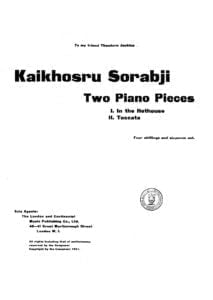
Please, subscribe to our Library.
If you are already a subscriber, please, check our NEW SCORES’ page every month for new sheet music. THANK YOU!
Browse in the Library:
Or browse in the categories menus & download the Library Catalog PDF:
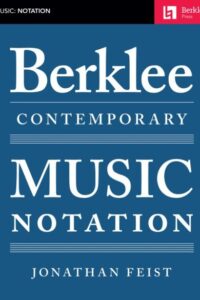
Who was Sorabji?
Kaikhosru Shapurji Sorabji: The Hermit of Modernist Maximalism
In the often-crowded pantheon of 20th-century composers, Kaikhosru Shapurji Sorabji (1892-1988) occupies a unique and enigmatic niche. A composer of staggering ambition, labyrinthine complexity, and self-imposed isolation, Sorabji crafted some of the most monumental, technically demanding, and stylistically idiosyncratic music ever conceived. His work, largely ignored during his lifetime and still challenging audiences today, represents a singular path through modernism – one defined by maximalism, intricate ornamentation, transcendental virtuosity, and a fierce, almost hermetic, independence.
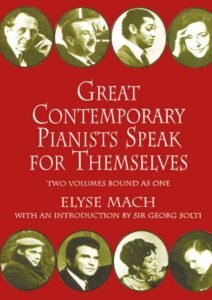
Biography: A Self-Forged Identity
- Birth & Heritage: Born Leon Dudley Sorabji on August 14, 1892, in Chingford, Essex, England. His father was a Parsi engineer from India (thus the Persian-derived name Sorabji), and his mother was English-Spanish. This mixed heritage profoundly shaped his sense of identity, though he felt alienated from both cultures.
- The Name: Around 1914, he legally changed his name to Kaikhosru Shapurji Sorabji. “Kaikhosru” and “Shapurji” were Persian names chosen for their resonance and connection to ancient Persian history and Zoroastrianism, reflecting his deliberate construction of a unique persona.
- Musical Formation: Largely self-taught. He received some piano lessons in his youth but had no formal composition training. His musical education came through voracious listening, score study (especially Bach, Liszt, Busoni, Debussy, Ravel, Scriabin, Szymanowski, Medtner), and wide reading in literature, philosophy, and the occult.
- Early Career & Criticism: Worked as a music critic (under the pseudonym “S. Godfrey”) for outlets like The New Age and The New English Weekly from the 1910s to the 1930s. His critiques were famously acerbic, insightful, and often scathing, particularly targeting English musical provincialism and composers he deemed mediocre (which was most of them).
- The Recluse: Deeply disillusioned by the musical establishment and critical reception to his early performances (which were rare and often controversial), Sorabji gradually withdrew from public musical life starting in the late 1930s. After his mother’s death in 1940, he retreated almost completely to his secluded home “The Eye” in Corfe Castle, Dorset, where he lived with his companion, Reginald Norman Best, until his death. He forbade performances of his music for decades.
- The Ban Lifted: In 1976, pressured by a growing underground interest spearheaded by pianists like Yonty Solomon and Alistair Hinton (who later became his literary executor), Sorabji reluctantly lifted the ban on performances, provided he approved the performer.
- Death: Sorabji died on October 15, 1988, in Winfrith Newburgh, Dorset, leaving behind a colossal legacy of unpublished manuscripts.
Works: Monuments of Sound

Sorabji’s output is vast and overwhelmingly dominated by solo piano music, though he also composed orchestral works, chamber music, organ symphonies, and songs. His works are renowned for their extreme length, density, and technical difficulty, pushing the boundaries of playability.
- Key Masterpieces:
- Opus Clavicembalisticum (1930): His most famous (or infamous) work. A colossal 4+ hour piano epic in 12 movements (including fugues, passacaglias, toccatas, cadenzas), often considered one of the most challenging solo piano works ever written. A summit of contrapuntal complexity and virtuosic display.
- Symphonic Variations for Piano (1935-37): Another monumental work, exploring vast variation forms over an extended duration.
- Sequentia Cyclica super “Dies iræ” ex Missa pro Defunctis (1948-49): A massive cycle of 27 variations on the “Dies Irae” chant, demonstrating his intricate contrapuntal and transformative skills.
- 100 Transcendental Studies (1940-44): True to their name, these studies explore extreme technical and expressive demands far beyond those of Liszt or Chopin.
- Symphonies for Solo Piano: Several exist, including his Symphony No. 2 (“Jāmī”), blending orchestral textures and scope onto the piano.
- Gulistān – Nocturne for Piano (1940): A prime example of his lush, perfumed, and incredibly intricate “Persian”-inspired style.
- Concerti: He wrote several for solo piano and orchestra (e.g., Concerto per suonare da me solo e senza orchestra, per divertirsi), which are symphonic in scale and require superhuman virtuosity.
- Symphonies for Organ: Vast, complex works exploring the sonic possibilities of the instrument.
Analysis of Style: A Universe of Complexity
Sorabji’s style is instantly recognizable yet difficult to categorize. It synthesizes diverse elements into a unique and overwhelming whole:
- Maximalism: This is the defining characteristic. Sorabji embraced extremes:
- Length: Works lasting several hours are common.
- Density: Highly polyphonic textures, often with multiple independent melodic lines woven together in complex counterpoint (influenced by Bach, Busoni).
- Virtuosity: Demands transcendental technique – cascades of notes, complex polyrhythms, wide leaps, immense power, and extreme delicacy. He wrote as if the pianist had four hands.
- Ornamentation: Baroque-like ornamentation (trills, mordents, turns, grace notes) is ubiquitous, often layered and integral to the texture, creating shimmering, kaleidoscopic surfaces (influenced by Scriabin, Szymanowski, Middle Eastern/Persian music).
- Dynamic Range: From barely audible whispers to thunderous, percussive climaxes.
- Harmony: A complex fusion:
- Rooted in late-Romantic chromaticism (Scriabin, Szymanowski, early Schoenberg).
- Freely employed dissonance, clusters, and intricate chord structures.
- Often retained a sense of tonal centers or polarity, even amidst dense chromaticism (unlike strict atonality).
- Incorporated modal inflections, sometimes evoking Persian or Spanish flavors.
- Rhythm: Highly complex and fluid:
- Frequent use of polyrhythms (multiple simultaneous rhythms), cross-rhythms, and nested tuplets (triplets within quintuplets, etc.).
- Tempo often fluctuates wildly, requiring immense control.
- A sense of improvisatory freedom within highly structured forms.
- Form: Often large-scale, complex, and idiosyncratic:
- Favored variations (passacaglias, chaconnes), fugues, toccatas, and intricate multi-movement structures (like the Opus Clavicembalisticum).
- Forms were often expansive and cumulative, building through layered repetition and intensification rather than traditional development.
- Architecture was paramount, even in the densest textures.
- Influences (Assimilated, Not Imitated):
- Ferruccio Busoni: The most profound influence. Busoni’s ideas of “Young Classicism,” the transcendental potential of the piano, the fusion of Bachian counterpoint with modern harmony, and the concept of “Junge Klassizität” resonated deeply. Sorabji dedicated his Opus Clavicembalisticum to Busoni’s memory.
- Franz Liszt: Virtuosity, thematic transformation, large-scale forms, and the symphonic poem concept translated to piano.
- J.S. Bach: Contrapuntal mastery, structural rigor, and the use of forms like fugue and passacaglia.
- Alexander Scriabin: Mysticism, harmonic language, dense textures, and ecstatic climaxes.
- Karol Szymanowski: Sensuous harmony, intricate ornamentation (especially in the “Persian” inspired works like Métopes and Masques), and voluptuous textures.
- Debussy & Ravel: Color, texture, exoticism, and pianistic refinement.
- Mediterranean & Persian Cultures: While not authentically recreating these styles, he evoked their essence through ornamentation, melodic turns, and titles (Gulistān, Jāmī), reflecting his fascination with his Persian heritage and the wider Orient.
- Aesthetic: Sorabji’s music aimed for:
- Transcendence: Pushing beyond perceived limits of instrument, performer, and listener.
- Luxuriance & Opulence: A rich, sensual, almost decadent sound world.
- Intellectual Rigor: Underlying the sensual surface was meticulous structural planning.
- Individualism: A complete rejection of prevailing trends (serialism, neoclassicism, minimalism) in favor of his own uncompromising vision.
Legacy: From Obscurity to Cult Status
Sorabji’s legacy is complex and evolving:
- Decades of Neglect: His self-imposed exile and performance ban meant his music was virtually unknown outside a tiny circle for nearly 40 years. Manuscripts were inaccessible, unplayable, and unpublished.
- The Pioneers (1970s-): The lifting of the ban sparked interest. Pianists like Yonty Solomon, Michael Habermann, Geoffrey Douglas Madge (who made the first complete recording of Opus Clavicembalisticum in 1977), and later Marc-André Hamelin, Jonathan Powell, Fredrik Ullén, and Ronald Stevenson began the monumental task of learning, performing, and recording his works. This required immense dedication and technical prowess.
- Publication & Scholarship: The Sorabji Archive, established by Alistair Hinton (Sorabji’s literary executor), has been crucial in cataloging, editing, and facilitating the publication of scores (primarily by Dover Publications and The Sorabji Music Archive). Scholarly work is gradually increasing.
- Recordings Renaissance: The CD era and digital distribution (YouTube, streaming) have been transformative. Dedicated labels (Altarus, BIS, Toccata Classics, Piano Classics) have released numerous recordings, making this once-inaccessible music available globally. Complete cycles of the 100 Studies and other major works are underway.
- The Cult & The Challenge: Sorabji remains a “composer’s composer” and a cult figure. His music is not mainstream concert fare due to its extreme demands and duration. However, it commands deep respect and fascination among pianists, composers, and listeners drawn to its unique sound world and uncompromising vision. He is seen as the ultimate iconoclast, forging a path utterly independent of 20th-century musical fashions.
- Influence: His direct influence on other composers is hard to pinpoint due to his obscurity, but he stands as a powerful symbol of uncompromising artistic integrity and the exploration of extreme complexity and virtuosity. Composers interested in maximalism, intricate counterpoint, or pushing pianistic limits inevitably encounter his shadow.
- Copyright Controversy: The complex copyright status of his works (involving the Sorabji Archive and publishers) has sometimes been a point of friction within the community of performers and scholars seeking access.
Sorabji: The Solitary Giant
Kaikhosru Shapurji Sorabji was a true original. He inhabited a musical universe entirely of his own making, synthesizing diverse influences into a style characterized by unparalleled complexity, sensuous opulence, and transcendental ambition. His deliberate withdrawal from the world ensured decades of obscurity, but the dedication of pioneering performers and the power of recording technology have brought his extraordinary soundscapes to light. While his music remains challenging and demanding, it offers unparalleled rewards: a journey into a world of labyrinthine beauty, overwhelming power, and intellectual fascination. Sorabji stands as a testament to the power of an utterly individual artistic vision, uncompromising in its scope and ambition, a solitary giant whose monumental creations continue to challenge and inspire. He redefined the possible for the piano and left a legacy that continues to unfold as more performers dare to scale his musical Himalayas.
“In the Hothouse” is one of Sorabji’s most evocative and frequently performed works, serving as a perfect entry point into his dense, sensuous sound world. Here’s a detailed look at this fascinating piece:
Context: Two Piano Pieces (1918)
- Composed: 1918 (early in Sorabji’s career, age 26).
- Publication: First published in 1920, making it one of the earliest Sorabji works available in print.
- The Pair: “In the Hothouse” is paired with “Toccata” – a contrasting, hyper-virtuosic, and structurally complex piece showing his Busoni/Liszt influences. “In the Hothouse” offers the sensual, atmospheric counterpoint.
- Significance: Represents Sorabji’s early mastery of texture, harmony, and evocative atmosphere. It predates his gargantuan works but already displays his unique voice.
“In the Hothouse”: A Sensory Immersion
- Title & Imagery: The title instantly conjures an environment: humid, lush, teeming with exotic, overripe plant life, heavy perfumes, and stifling, enclosed heat. Sorabji translates this sensory overload into sound.
- Form & Structure: Relatively free and rhapsodic. It unfolds as a continuous, organic stream of consciousness rather than adhering to strict classical forms. Think of it as an elaborate, decadent arabesque.
- Style & Character:
- Extreme Sensuality: This is the defining feature. The music drips with lush, complex harmonies and suffocatingly rich textures.
- Harmony: Deeply chromatic, rooted in late Scriabin and early Szymanowski. Expect dense, constantly shifting chords: augmented harmonies, whole-tone inflections, unresolved dissonances creating tension, and sudden moments of surprising consonance like shafts of light piercing foliage. It avoids traditional tonality but gravitates around implied centers.
- Texture: Thick, layered, and constantly in motion. Tremolos, trills, rapid filigree (ornamental passages), and cascading arpeggios create a shimmering, humid haze. Melodies are often embedded within this dense undergrowth rather than standing clearly apart. The writing often requires the pianist to sustain multiple layers simultaneously.
- Rhythm: Fluid and flexible, often obscured by the sheer density of notes and ornamentation. Rubato (expressive tempo fluctuations) is essential. While less overtly complex polyrhythmically than his later works, the rhythmic flow feels organic and improvisatory.
- Dynamics & Articulation: Wide dynamic range, often shifting suddenly between extremes (e.g., thunderous climaxes collapsing into fragile whispers). Articulation varies from sharp staccatos to legatissimo passages that blur together. Pedaling is crucial for sustaining the harmonic haze and creating resonance.
- Ornamentation: Quintessential early Sorabji. Trills, mordents, turns, and grace notes are not mere decoration; they are the texture, creating constant flickering movement and contributing to the claustrophobic, teeming atmosphere. This foreshadows the intricate ornamentation dominating his mature style.
- Emotional Landscape: Evokes opulence, decadence, languor, mystery, stifling heat, hidden dangers, and overwhelming sensory stimulation. There’s a sense of beauty bordering on the grotesque due to its sheer intensity.
Influences Audible in “In the Hothouse”
- Scriabin (Primary): The harmonic language (mystic chords, unresolved dissonance, ecstatic climaxes), the sensual atmosphere, and the use of trills/tremolos are deeply indebted to Scriabin’s late sonatas and poems (e.g., Vers la flamme). Sorabji pushes Scriabin’s decadence further.
- Szymanowski: The opulent textures, perfumed harmonies, and “orientalist” exoticism (though abstracted here) strongly recall Szymanowski’s “Métopes” or “Masques,” which Sorabji admired deeply.
- Debussy: The focus on atmosphere, texture, and harmonic color (whole-tone scales, parallel chords) shows Debussy’s influence, though rendered with far greater density and intensity.
- Ravel: The virtuosic filigree and lush harmonies (think “Gaspard de la Nuit,” especially “Ondine” or “Le gibet”) are a touchstone, again amplified.
- Liszt: The rhapsodic freedom and dramatic gestures hint at Liszt, though filtered through a post-Scriabinesque lens.
Performance Challenges
- Texture & Balance: Maintaining clarity amidst the dense, rapidly shifting textures is paramount. The pianist must carefully voice chords and layers to prevent muddiness while sustaining the essential harmonic haze.
- Ornamentation as Texture: Executing the constant ornamentation smoothly and evenly, integrating it into the melodic and harmonic flow rather than treating it as mere decoration.
- Dynamic Control: Navigating the extreme dynamic contrasts and sudden shifts without sounding jarring. Creating a true pianissimo shimmer within complexity is incredibly difficult.
- Rubato & Phrasing: Applying expressive tempo fluctuations naturally while maintaining the overall structural coherence and forward momentum of the rhapsodic form.
- Pedaling: Using the pedal to create resonance and blend without causing harmonic blurring or loss of rhythmic definition. Requires exceptional sensitivity.
- Stamina & Focus: While shorter than his later works (typically 12-15 minutes), the piece demands intense concentration and physical control to sustain the atmosphere and navigate the technical intricacies.
Legacy & Significance of “In the Hothouse”
- Accessibility: It remains one of Sorabji’s most “accessible” works due to its evocative title, relatively shorter duration, and concentrated expression. It’s a frequent choice for pianists introducing audiences to Sorabji.
- Blueprint: It serves as a crucial blueprint for Sorabji’s mature style, showcasing his core preoccupations: sensuality, harmonic density, intricate ornamentation as texture, and atmospheric evocation, all present in embryonic form.
- Performance History: Despite Sorabji’s later ban, “In the Hothouse” (along with the Toccata) was one of the few pieces occasionally performed during his lifetime (e.g., by Sorabji himself and pianist Reginald Paul) and became a key work for the pioneering generation post-1976 (Yonty Solomon, Michael Habermann, Marc-André Hamelin, Jonathan Powell, Fredrik Ullén).
- Gateway Piece: It functions as a vital “gateway drug” into Sorabji’s world. Its success in conveying its intense atmosphere often encourages listeners to explore his more monumental, complex works.
- Standalone Masterpiece: Regardless of its role as an introduction, it stands as a perfectly formed and powerful piece of early modernist piano writing, a miniature tone poem of extraordinary evocative power.
“In the Hothouse” is a sun-drenched, overripe, and intoxicating immersion into Sorabji’s unique aesthetic. It captures the essence of his sensual maximalism in a concentrated dose, showcasing his debt to Scriabin and Szymanowski while asserting his own distinct voice. Its evocative power, technical brilliance, and relative brevity ensure its enduring place as one of his most beloved and frequently performed works, offering a compelling glimpse into the hothouse of Sorabji’s extraordinary musical imagination.
| Artist or Composer / Score name | Cover | List of Contents |
|---|---|---|
| Meredith Willson It’s Beginning To Look A Lot Like Christmas Piano vocal Guitar Sheet Music | Meredith Willson It’s Beginning To Look A Lot Like Christmas Piano vocal Guitar Sheet Music | |
| Meredith Willson The Music Man A Musical Comedy Piano Vocal Score |
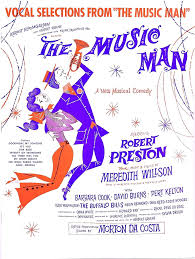 |
Meredith Willson The Music Man A Musical Comedy Piano Vocal Score |
| Merry Go Round Of Life (Trio) (Musescore File).mscz | ||
| Merry-go-round of life (Howl’s Moving Castle) Joe Hisaishi |
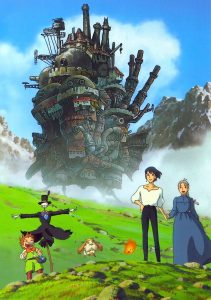 |
|
| Messiaen 8 Preludes Pour Piano |
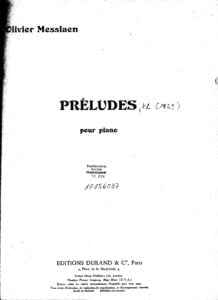 |
|
| Messiaen Ile De Feu 1 Piano |
 |
|
| Messiaen Ile De Feu 2 Piano | Messiaen Ile De Feu 2 Piano | |
| Messiaen Le Banquet Celeste |
 |
|
| Messiaen Petites Esquisses |
 |
|
| Messiaen Technique (The Technique of my Musical Language) Book |
 |
|
| Messiaen Vingt Regards Sur Lenfant Jesus Piano |
 |
|
| Messiaen, Olivier – Des Canyons Aux Etoiles Piano Solo Part |
 |
|
| Messiaen, Olivier – La Fauvette Des Jardins Pour Piano (partition) |
 |
|
| Metallica Riff by Riff Guitar by Mark Phillips with Tablature |
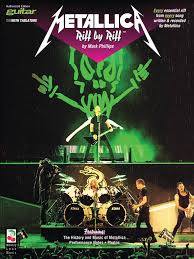 |
Metallica Riff by Riff Guitar by Mark Phillips with Tablature |
| Metallica – And Justice For All – Guitar Bass Tablature sheet music |
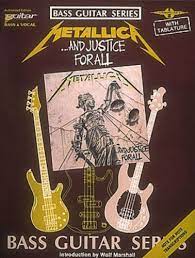 |
|
| Metallica – Fade To Black | ||
| Metallica – Kill ‘Em All – Guitar Bass Tablature sheet music |
 |
Metallica – Kill ‘Em All – Guitar Bass Tablature sheet music |
| Metallica – Master Of Puppets – Guitar Bass Tablature sheet music |
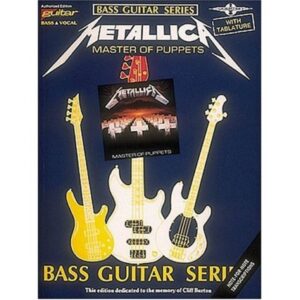 |
Metallica – Master Of Puppets – Guitar Bass Tablature sheet music |
| Metallica – Nothing Else Matters | ||
| Metallica – Play Guitar With – with audio MP3 (Guitar TAB) with Tablature |
 |
Play Guitar With – Metallica |
| Metallica … And Justice For All (Guitar with Tablature) |
 |
Metallica … And Justice For All (Guitar) |
| Metallica Black Album GUITAR with Tablature |
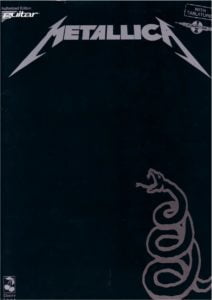 |
Metallica Black Album GUITAR |
| Metallica Death Magnetic Guitar with Tablature |
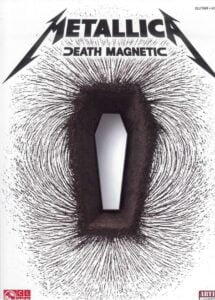 |
Metallica Death Magnetic |
| Metallica Master Of Puppets Guitar with Tablature |
 |
Metallica Master Of Puppets |
| Metallica Play Guitar With – Book 2 With Mp3 Audio Tracks (Guitar TAB) |
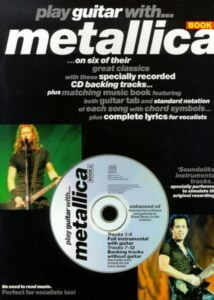 |
Metallica Play Guitar With Book 2 With Mp3 Audio Tracks |
| Metallica Reload Guitar Songbook with Tablature |
 |
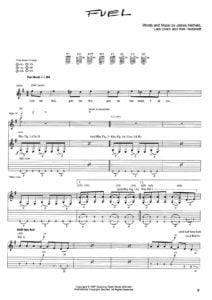 |
| Metallica Ride The Lightning with Tablature |
 |
Metallica Ride The Lightning |
| Metamorphosis One (Musescore File).mscz | ||
| Method Guitar Unplugged Rebillard – FRENCH (Clapton,Nirvana,Led Zeppelin,Neil Young,Rolling Stones,Metallica,Pink Floyd,Dire Straits,Rem,The Beatles,Bob Dylan) (with AUDIO MP3) |
 |
|
| Methode Jean Robur – Piano Jazz pour tous (French – français) |
 |
|
| Metodo completo de piano (Español) Terry Burrows (con audio MP3) |
 |
|
| METODO DE SOLFEO HILARION ESLAVA LAS 4 PARTES COMPLETAS (Spanish-Español) |
 |
|
| Metro 2033 Main Theme Piano Solo |
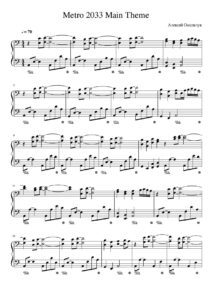 |
|
| Metro Last Light Ost Metro Last Light by Alexey Omelchuk |
 |
|
| Meu Piano É Divertido (Portugués) |
 |
|
| Mezz Mezzrow Really The Blues A Memoir (Mezzrow Mezz Wolfe Bernard) Book |
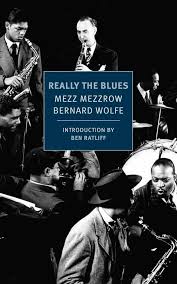 |
|
| Mi sono innamorato di te (Luigi Tenco) | ||
| Mia & Sebastian’s Theme – La La Land OST (Justin Hurwitz) | ||
| Michael and Nikita’s Love Theme (Sean Callery) | ||
| Michael Bloomfield Guitar Anthology (Bloomfield, Michael) Sheet Music |
 |
Michael Bloomfield Guitar Anthology (Bloomfield, Michael) Sheet Music |
| Michael Bloomfield The Rise And Fall Of An American Guitar Hero (Bloomfield, Michaelward, Ed) (Book) |
 |
|
| Michael Bolton How Am I Supposed To Live Without You | Michael Bolton How Am I Supposed To Live Without You | |
| Michael Bolton When A Man Loves A Woman | Michael Bolton-When A Man Loves A Woman | |
| Michael Bolton When A Man Loves A Woman Sheetmusicdownload | Michael Bolton When A Man Loves A Woman Sheetmusicdownload | |
| Michael Brecker Artist Transcriptions |
 |
Michael Brecker Artist Transcriptions |
| Michael Brecker Both Sides Of The Coin (Jazz Standard) |
 |
|
| Michael Brecker Impressions (solo jazz sheet music transcripton) jazz tenor | Michael Brecker Impressions (solo jazz sheet music transcripton) jazz tenor | |
| Michael Brecker Inventions And Dimensions Jazz Styles Saxophone by Olegario Díaz |
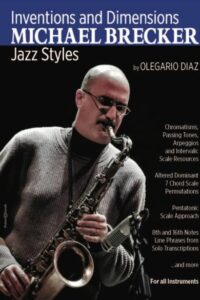 |
|
| Michael Brecker Jazz Tenor Solos |
 |
|
| Michael Brecker Ode To A Tenor Titan The Life And Times And Music Of Michael Brecker By Bill Milkowski (Book) sheet music |
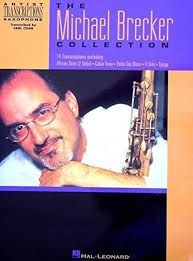 |
|
| Michael Brecker several Jazz transcriptions |
 |
Michael Brecker several Jazz transcriptions |
| Michael Brecker Solo Transcriptions |
 |
|
| Michael Brecker Solos |
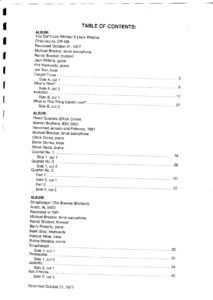 |
Michael Brecker Solos |
| Michael Brecker songbook Saxophone Artist Transcriptions transcribed by Carl Can |
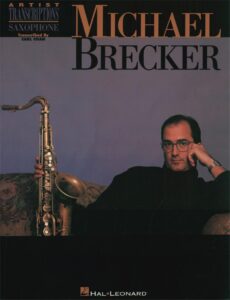 |
Michael Brecker songbook Saxophone Artist Transcriptions transcribed by Carl Can |
| Michael Buble Songbook |
 |
Michael Buble Songbook |
| Michael Buble – Everything | ||
| Michael Buble – Feeling Good |
 |
|
| Michael Bublé Best Of Michael Bublé Piano Vocal Guitar Chords |
 |
Michael Bublé Best Of Michael Bublé Piano Vocal Guitar Chords |
| Michael Bublé Call Me Irresponsible (Songbook) Piano Vocal Guitar chords |
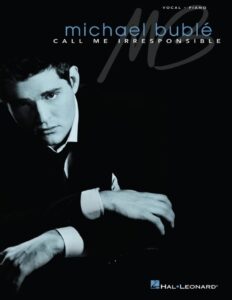 |
Michael Bublé Call Me Irresponsible (Songbook) Piano Vocal Guitar chords |
| Michael Bublé Christmas Vocal Piano Arrangements |
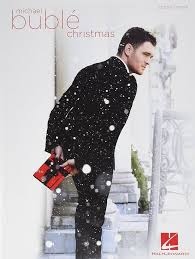 |
Michael Bublé Christmas – Vocal Piano Arrangements Contents |
| Michael Buble Complete Songbook |
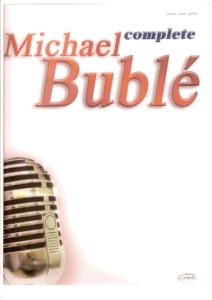 |
Michael Bublé Complete Songbook |
| Michael Buble It’s Beginning To Look A Lot Like Christmas By Meredith Willson (Piano Vocal Lyrics) | Michael Buble It’s Beginning To Look A Lot Like Christmas By Meredith Willson (Piano Vocal Lyrics) | |
| Michael Bublé Let It Snow Piano Vocal Guitar Chords |
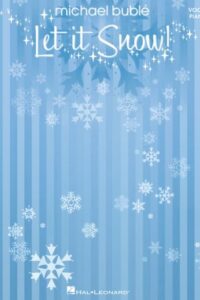 |
|
| Michael Bublé Save The Last Dance For Me Piano Solo |
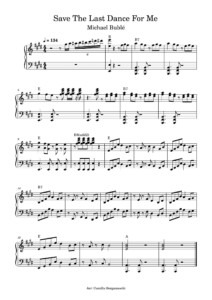 |
|
| Michael Bunyan Jazz Songbook |
 |
|
| Michael Danna Little Miss Sunshine Piano Solo | Michael Danna Little Miss Sunshine Piano Solo | |
| Michael Dulin Simply Satie from the album Timeless | Michael Dulin Simply Satie from the album Timeless | |
| Michael Franks Piano Vocal Guitar Chords |
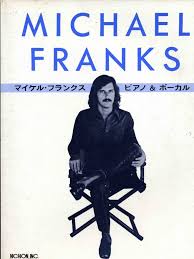 |
Michael Franks Piano Vocal Guitar Chords |
| Michael Giacchino – Life And Death Sheet Music Piano solo sheet music | Michael Giacchino – Life And Death Sheet Music Piano solo sheet music | |
| Michael Giacchino – Lost (Arranged For Solo Piano) |
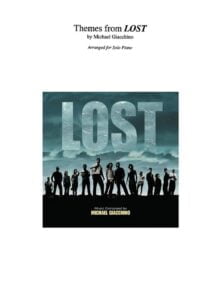 |
Michael Giacchino – Lost (Arranged For Solo Piano) |
| Michael Giacchino – Ratatouille (Piano Solo Songbook) |
 |
Michael Giacchino – Ratatouille (Piano Solo Songbook) |
| Michael Giacchino Jurassic World Fallen Kingdom Music From The Motion Picture Soundtrack Piano Solo |
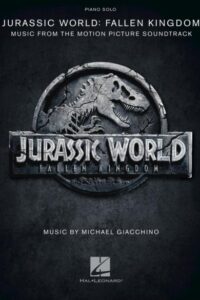 |
Michael Giacchino Jurassic World Fallen Kingdom Music From The Motion Picture Soundtrack Piano Solo |
| Michael Giacchino Sheet Music Collection Piano Solo |
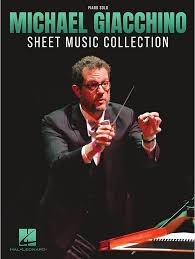 |
Michael Giacchino Sheet Music Collection Piano Solo |
| Michael Jackson Billie Jean (Jazz Version) | Michael Jackson Billie Jean (Jazz Version) | |
| Michael Jackson – Childhood | ||
| Michael Jackson – Dangerous SongBook (Piano, guitar, vocal) |
 |
Dangerous SongBookMichael Jackson Best Of |
| Michael Jackson – Earth Song | ||
| Michael Jackson – Heal The World | ||
| Michael Jackson – The Great Songbook (Piano, guitar, vocal) |
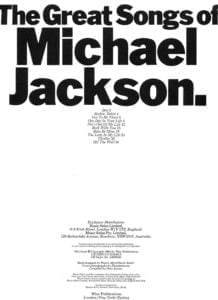 |
Michael Jackson – The Great Songbook |
| Michael Jackson – You Are Not Alone | ||
| Michael Jackson (jazz) Bille Jean Jazz Piano Sheet Music |
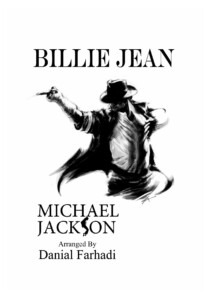 |
|
| Michael Jackson 1958 2009 Piano Vocal Guitar |
 |
Michael Jackson 1958 2009 Piano Vocal Guitar |
| Michael Jackson and Justin Timberlake Love Never Felt So Good Piano Vocal guitar songbook |
 |
|
| Michael Jackson Beginner easy piano and keyboard E Z Play Today |
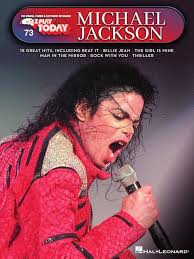 |
Michael Jackson Beginner easy piano and keyboard E Z Play Today |
| Michael Jackson Best Of |
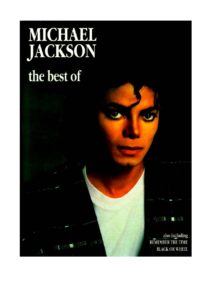 |
Michael Jackson Best Of |
| Michael Jackson Billie Jean Piano vocal Sheet Music |
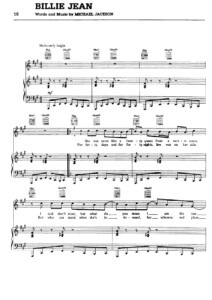 |
|
| Michael Jackson Collection |
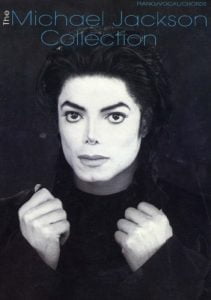 |
Michael Jackson Collection |
| Michael Jackson Earth Song (Piano Solo) | Michael Jackson Earth Song | |
| Michael Jackson Heal The World | ||
| Michael Jackson Invincible Songbook |
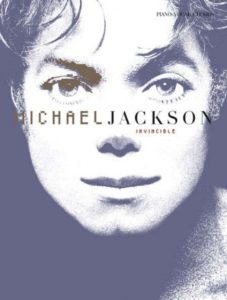 |
Unbreakable,Heartbreake,Invincible,Break of Dawn,Heaven Can Wait You Rock My World, Butterflies, Speechless, 2000 Watts,You Are My Life,Privacy,Don’t Walk Away,Cry,The Lost Children,Whatever Happens,ThreatenedMichael Jackson Invincible Songbook |
| Michael Jackson Legend 1958 2009 (Book) By Chas Newkey Burden |
 |
|
| Michael Jackson Lionel Richie We Are The World Piano Solo Arr. |
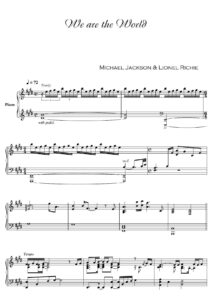 |
|
| Michael Jackson Man In The Mirror Guitar Tabs Arr. By Tuck Andress Comp. Siedah Garrett And Glen Ballard |
 |
|
| Michael Jackson Michael Songbook Piano Vocal Guitar |
 |
Michael Jackson Michael Songbook Piano Vocal Guitar |
| Michael Jackson Number Ones |
 |
Michael Jackson number ones |
| Michael Jackson R. Kelly – You Are Not Alone (Jazz Piano solo) | Michael Jackson R. Kelly – You Are Not Alone (Jazz Piano solo) | |
| Michael Jackson This Is It (Piano Solo) | Michael Jackson This Is It (Piano Solo) | |
| Michael Jackson Thriller |
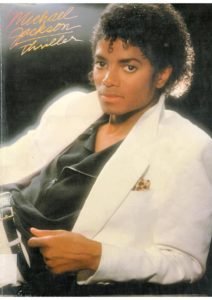 |
Michael Jackson Thriller |
| Michael Jackson We Are The World | Michael Jackson We Are The World | |
| Michael Jackson You Are Not Alone | Michael Jackson You Are Not Alone | |
| Michael Jackson You Are Not Alone (Piano Solo) | Michael Jackson You Are Not Alone piano Solo | |
| Michael Massei – The Greatest Love Of All |
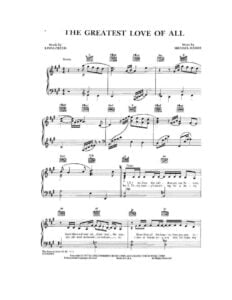 |
|
| Michael Masser – Hold Me In Your Arms | ||
| Michael McDonald The Ultimate Collection Piano Vocal Guitar |
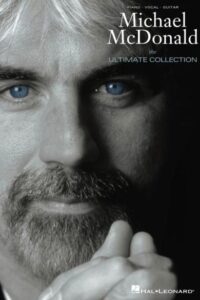 |
Michael McDonald The Ultimate Collection Piano Vocal Guitar |
| Michael Nyman – (The Piano) The Heart Ask Pleasure First (Musescore File).mscz | ||
| Michael Nyman – Debbie (from the film Wonderland) |
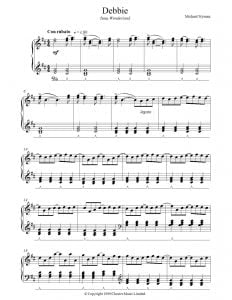 |
|
| Michael Nyman – Film Music For Solo Piano |
 |
Michael Nyman Film Music for So – Film Music For Solo Piano |
| Michael Nyman – If | Michael Nyman If | |
| Michael Nyman – Revisiting The Piano |
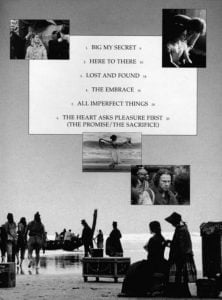 |
Michael Nyman – Revisiting The Piano |
| Michael Nyman – The Heart Asks Pleasure First | ||
| Michael Nyman – The Piano – Complete book |
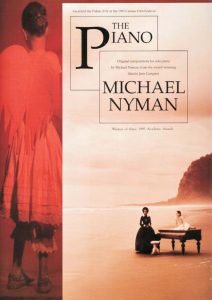 |
Michael Nyman – The Piano – Completa |
| Michael Nyman Chasing Sheep Is Best Left To Shepherds |
 |
|
| Michael Nyman Collected Writings (Book) |
 |
|
| Michael Nyman Diary of Love (The end of the affair) | Michael-Nyman Diary-of-Love The-end-of-the-affair | |
| Michael Nyman Experimental Music Cage and Beyond (Book) |
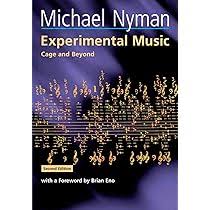 |
|
| Michael Nyman Franklyn | Nymann-Franklyn | |
| Michael Nyman Shaping The Curve Soprano Saxophone And Piano |
 |
|
| Michael Nyman The Heart Asks Pleasure First The Piano (Musescore File).mscz | ||
| Michael Nyman The Promise piano solo |
 |
|
| Michael Schenker Very Best Of Guitar Tablature |
 |
Michael Schenker Very Best Of Guitar Tablature |
| Michael Shaw Popular Standards For Clarinet With Piano Accompaniment Sheet Music |
 |
Michael Shaw Popular Standards For Clarinet With Piano Accompaniment Sheet Music |
| Michael W Smith Freedom |
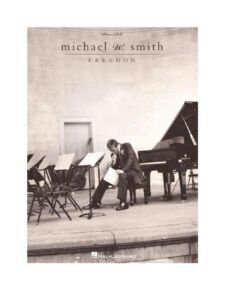 |
Michael W Smith Freedom |
| Michael Wang – Fairytale | ||
| Michel Camilo – From within | Michel-camilo-From-within-Michel-camilo-From-within- | |
| Michel Camilo Latin Skills |
 |
|
| Michel Camilo Piano Solo |
 |
Michel Camilo – Piano Solo |
| Michel Legrand Claude Nougaro Le Cinéma | Michel Legrand Claude Nougaro Le Cinéma | |
| Michel Legrand Les Demoiselles De Rochefort Piano Solo | Michel Legrand Les Demoiselles De Rochefort Piano Solo | |
| Michel Legrand Les Moulins De Mon Coeur (The Windmills Of Your Mind) Piano Solo | Mchel Legrand Les Moulins De Mon Coeur (The Windmills Of Your Mind) Piano Solo | |
| Michel Legrand Les Moulins De Mon Coeur (The Windmills Of Your Mind) Guitar Chords |
 |
|
| Michel Legrand Les Moulins De Mon Coeur (The Windmills Of Your Mind) Piano and lyrics in English | Mchel Legrand Les Moulins De Mon Coeur (The Windmills Of Your Mind) Piano and lyrics in English | |
| Michel Legrand Les Moulins De Mon Coeur (The Windmills Of Your Mind) Piano et parolles en français | Mchel Legrand Les Moulins De Mon Coeur (The Windmills Of Your Mind) Piano et parolles en français | |
| Michel Legrand Nous Voyageons De Ville En Ville (Les Demoiselles De Rochefort) |
 |
|
| Michel Legrand Oum Le Dauphin Blanc (Zoom The White Dolphin) | Michel Legrand Oum Le Dauphin Blanc (Zoom The White Dolphin) | |
| Michel Legrand Chanson De Maxence |
 |
|
| Michel Legrand Chanson Des Jumelles Du Film Les Demoiselles De Rochefort |
 |
|
| Michel Legrand film scores Piano book (The Music of Michel Legrand) |
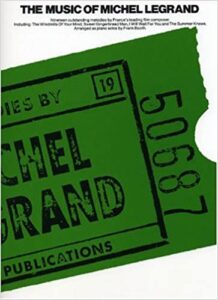 |
Michel Legrand piano sheet music |
| Michel Legrand – Les Demoiselles De Rochefort Songbook |
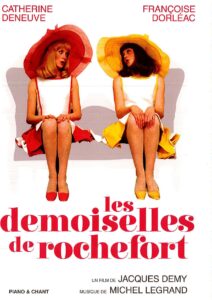 |
|
| Michel Legrand – Les Parapluies De Cherbourg Guitar Tabs arr. |
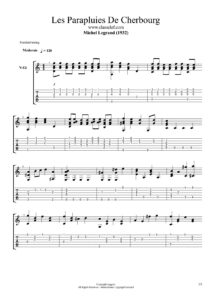 |
|
| Michel Legrand – Oum Le Dauphin Blanc (Zoom The White Dolphin) (Musescore File).mscz | ||
| Michel Legrand – What Are You Doing The Rest Of Your Life (Guitar) (Musescore File).mscz | ||
| Michel Legrand Album 16 Chansons |
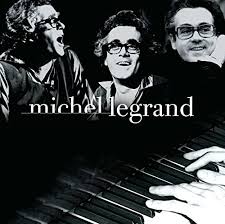 |
Michel Legrand Album 16 Chansons |
| Michel Legrand Les Demoiselles De Rochefort Thème Concerto (Piano) |
 |
|
| Michel Legrand Les Moulins De Mon Coeur (The Windmills Of Your Mind) Guitar TAB | Michel Legrand Les Moulins De Mon Coeur (The Windmills Of Your Mind) Guitar TAB | |
| Michel Legrand Les Parapluies de Cherbourg | Les-Parapluies-de-Cherbourg | |
| Michel Legrand Les Parapluies De Cherbourg arr. Paul Mauriat Piano solo partition |
 |
|
| Michel Legrand Quand On S’aime |
 |
|
| Michel Legrand Songbook Piano Vocal Guitar Chords by Legrand, Michel (1999) |
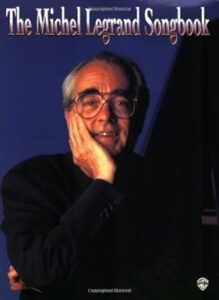 |
Michel Legrand Songbook Piano Vocal Chords by Legrand, Michel (1999) |
| Michel Legrand The Genius Of, Songbook |
 |
Michel Legrand The Genius Of, Songbook |
| Michel Petrucciani Home (Solo Live 1998) Sheet Music Transcription | Michel Petrucciani Home (Solo Live 1998) Sheet Music Transcription |
